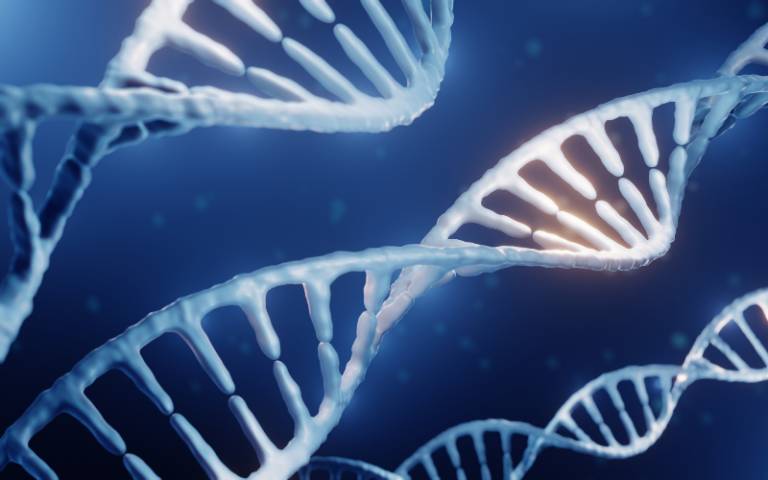Orchard Therapeutics (Orchard), a UCL spin out company, which develops pioneering gene therapies for rare diseases, is set to be acquired by Japanese pharmaceutical firm Kyowa Kirin for up to $477.6m (£393.3m).

Orchard was founded in 2015 through a partnership between UCL Business (UCLB), the commercialisation company for UCL, and F-Prime Capital Partners. Its revolutionary treatments are the result of decades long gene therapy research and clinical work led by UCL Professors Bobby Gaspar and Adrian Thrasher, both based at UCL Great Ormond Street Institute of Child Health.
The significant deal with Kyowa Kirin will help build on Orchard's track record of developing curative treatments for patients with severe and devastating genetic disorders and enable the company to create new drugs for a wider range of conditions.
Orchard's proprietary technology harnesses a patient's own genetically modified hematopoietic stem cells (HSCs) to potentially correct the underlying cause of a genetic disease (restore gene function) using a single administration (dose).
Among the therapies developed by Orchard includes Libmeldy (atidarsagene autotemcel), also known as OTL-200, designed for patients with early-onset metachromatic leukodystrophy (MLD), a rare and life-threatening inherited disease of the body's metabolic system.
In the most severe form of MLD, babies develop normally, but in late infancy start to rapidly lose the ability to walk, talk and interact with the world around them. Libmeldy corrects the genetic cause of MLD by inserting functional copies of a faulty gene into the patient's stem cells. The stem cells come from their own bone marrow or blood and are fed back into the body with the new genetic information.
Libmeldy is approved by the European Commission (EC) and UK Medicines and Healthcare products Regulatory Agency (MHRA) for the treatment of "late infantile" and "early juvenile" MLD patients. It is currently an investigational drug under Priority Review by the Food and Drug Administration (FDA) with a Prescription Drug User Fee Act (PDUFA) goal date of 18th March, 2024.
Using the same HSC gene therapy technology platform, Orchard is progressing two clinical-stage programmes known as OTL-203 and OTL-201 for the treatment of another group of severe paediatric neurometabolic disorders: mucopolysaccharidosis type I Hurler's syndrome (MPS-IH) and mucopolysaccharidosis type IIIA (MPS-IIIA), also known as Sanfilippo syndrome, respectively.
This acquisition also has the potential to accelerate the development of Orchard's next-in-line MPS programmes, as well as its early research programmes, which include a severe, genetic form of Crohn's disease and frontotemporal dementia (FTD).
Simon Goldman, Investment Director, UCLTF, commented on the transaction: "Kyowa Kirin's move to acquire Orchard is terrific news for the company, and for the ex vivo lentiviral gene therapy space in general - which remains one of the safest and most efficacious gene therapy modalities. This is also a great outcome and validation of the innovation ecosystem at UCL, which was a critical part of the technology and the company's development. As founding investors in Orchard, we're immensely pleased and look forward to further positive developments for rare disease patients globally."
Following Orchard's launch in 2015, F-Prime Capital Partners led on a £21 million Series A investment into Orchard. In 2018, Orchard announced the closing of $225 million through its initial public offering to help transform the lives of patients with serious and life-threatening rare diseases.
The UCL Technology Fund, managed by AlbionVC in collaboration with UCLB, has also invested in Orchard.






